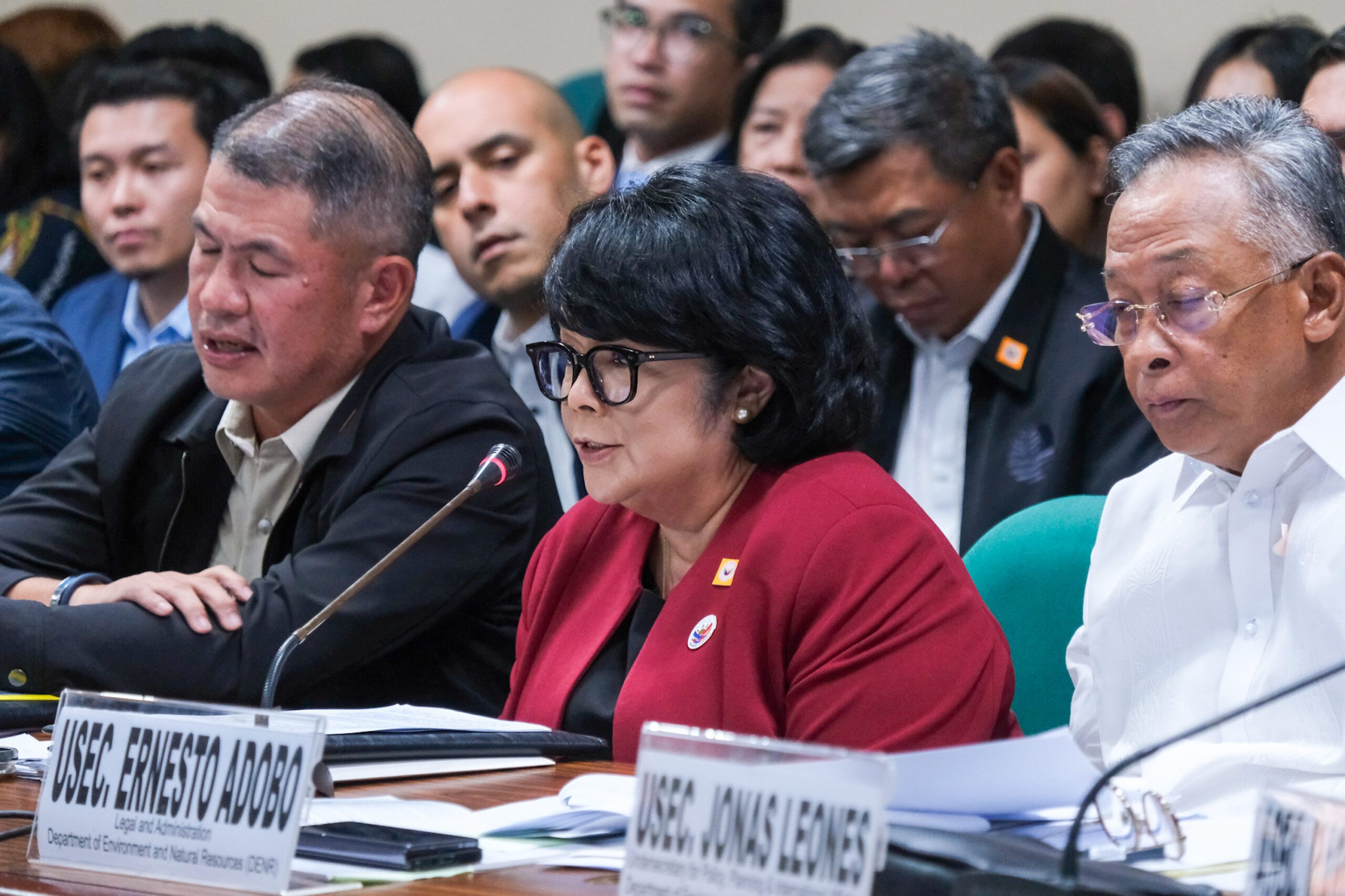
Upgrade to High-Speed Internet for only ₱1499/month!
Enjoy up to 100 Mbps fiber broadband, perfect for browsing, streaming, and gaming.
Visit Suniway.ph to learn
MANILA, Philippines – Toni Yulo-Loyzaga leaves the Department of Environment and Natural Resources (DENR) after three years of service, a stint dotted by controversies that demanded her departure from her methodical working style.
The outgoing secretary’s big project in the department was to map the Philippines’ natural resources. Not big on politics and the press, she buttressed her governance on scientific expertise and knowledge.
For Loyzaga, the saving is in the knowing.
Upon her arrival at the DENR, she brought with her geologist Carlos Primo David and created the geospatial database office, which has so far mapped the Philippines’ mangroves, water resources, mineral areas, and forest covers.
“For 2025, we hope to finish the [mapping of] seagrass and coral reefs,” David told Rappler.
But rigorous studies usually take time and do not necessarily keep up with the rise and dip of public clamor — as in the case of the Manila Bay reclamation study, which took two years before the results were released.
“Working with her is a reminder that lasting change often comes from quiet, consistent, and principled work,” Charina Repollo, among the scientists who worked with Loyzaga on the Manila Bay study, told Rappler.
Repollo said Loyzaga’s trust in scientists and experts “empowered us to contribute meaningfully to long-term solutions.”
This project, as often pointed out by Loyzaga, is to help the department fulfill its mandate as ordered by the Supreme Court: to make Manila Bay waters clean and safe for recreation.
 PROBE. Loyzaga and other DENR officials attend the Senate hearing on the defacement or exploitation of the Chocolate Hills Natural Monument and other protected areas on April 3, 2024. File photo by Angie de Silva/Rappler
PROBE. Loyzaga and other DENR officials attend the Senate hearing on the defacement or exploitation of the Chocolate Hills Natural Monument and other protected areas on April 3, 2024. File photo by Angie de Silva/RapplerScientists and experts understand and appreciate Loyzaga’s methodical approach to carrying out this mandate. It’s a different story for fishers and environmental organizations who repeatedly called on the government to release its findings on Manila Bay.
They eventually filed a case against the DENR and the Philippine Reclamation Authority with the Supreme Court, claiming that these agencies “violated their mandate for failure to assess the risks and impacts of seabed quarrying and reclamation in Manila Bay.”
From international to local work
“Analysis paralysis” is something that often afflicts scientists in government, conservationist Neil Aldrin Mallari pointed out. He conceded, however, that Loyzaga has been successful in international climate change efforts.
Mallari cited the Philippines’ position in the Loss and Damage Fund Board. “That’s a big deal,” he told Rappler in Filipino.
The country’s role as host of the board was something that President Ferdinand Marcos Jr. eyed in 2023 to aid in “shaping global climate policy.”
But the foreign travel that came with maintaining international commitments did not escape criticism. In 2023, Senator Raffy Tulfo alleged that the cost of Loyzaga’s foreign trips ballooned to P1.1 billion.
 HOST. Loyzaga signs on November 12, 2024, the host country agreement with the Loss and Damage Fund Board. File photo by DENR
HOST. Loyzaga signs on November 12, 2024, the host country agreement with the Loss and Damage Fund Board. File photo by DENRBack home, conservation issues hounded her agency: the illegal structures on Bohol’s Chocolate Hills and Mount Apo, and the feud between the government and Masungi Georeserve.
“After three difficult years that have nearly undone over two decades of conservation work in Masungi, I hope that [Raphael Lotilla’s] leadership signals a new dawn,” Ann Dumaliang, managing trustee of Masungi Georeserve, said in a statement.
During Loyzaga’s watch, the DENR canceled its contract with Masungi Georeserve developer Blue Star Construction Development Corporation, citing violations and failure to execute the initially agreed upon government housing project.
The Masungi issue, however, does not reflect the Loyzaga-led DENR’s relationship with the private sector. It partnered with the country’s biggest conglomerates to protect Verde Island Passage, where they are building natural gas facilities.
Loyzaga had been vocal, too, about her support for the mining industry, especially in light of its role in the transition to clean energy.
A new chief
Loyzaga leaves a department that has made some headway in international climate negotiations, a baseline of the country’s basic resources, and an amiable environment for conglomerates.
But as she leaves, many of the persistent issues — present even before she took the helm — continue to burden the agency: the management of protected areas and the dilemma between protecting resources and allowing their utilization for economic growth.
Replacing Loyzaga is Raphael Lotilla, who was the Marcos government’s energy secretary prior to his latest appointment.
Reactions from concerned groups were mixed. While some welcomed Lotilla’s appointment, some expressed skepticism.
Greenpeace Philippines said Lotilla’s “track record at the [Department of Energy] was less than desirable.”
Environmental network Kalikasan said Lotilla, who “championed and secured the interests of energy conglomerates…now stands poised to do the same at the DENR.”
Lotilla has yet to bare his plans for the DENR. In the meantime, some institutions Loyzaga had worked with released messages thanking her for a leadership they described as science- and evidence-based.
The UP Marine Science Institute said the outgoing secretary shared “our understanding of the Philippines as an archipelagic nation.”
“For that, we are most grateful,” they said. – Rappler.com

 1 day ago
5
1 day ago
5



